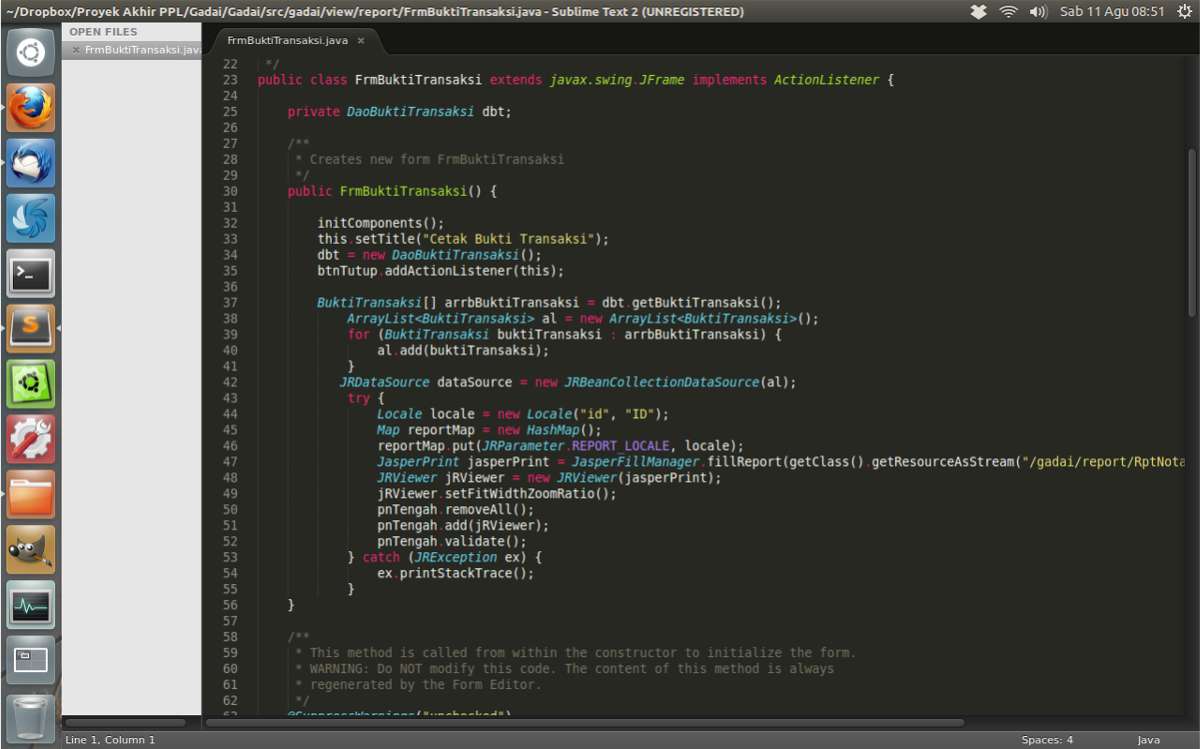The 4 Best Text Editors for Developers on Linux
Few topics in the Linux community get users as passionate as the subject of text editors. Everyone has their favorite, and countless reasons as to why they prefer it over others. The trouble is, there are a lot of different text editors on Linux each built with a particular use in mind. As a result, new users looking for a good text editor might be overwhelmed with all the different choices. That’s why in this article, we’ll go over some of the best text editors for developers on Linux.
Please keep in mind that though this is a ranked list, that doesn’t mean there’s an “ultimate” text editor. Each program has benefits and drawbacks, depending on who uses it and for what.
1. VIM

VIM is a text editor that exists to improve upon the Vi text editor. The developers saw a good base to start off with, but thought that it could be better. The VIM text editor is a staple for development on Linux.
The reason many turn to VIM is due to the fact that the text editor offers different types of text editor modes (including a robust command-line mode), syntax highlighting, a low memory footprint, and more. Many Linux users say that VIM isn’t very user friendly which is true. The fact is that it’s not really like any other text editor out there. It does things radically different, and as a result, new users will feel unwelcome. Many say that this is a weakness to VIM. However, hardcore fans argue that though the features take a bit time to learn, it’s ultimately worth it.
If you’re a developer on Linux looking for a solid text editor, do give VIM a try. There may be a bit of a learning curve, but if you can master it, you’ll never want to turn back.
2. Emacs

Emacs is a highly configurable, and customizable text editor brought to you by the GNU project. It’s centered around development, and as a result has many, different features. The text editor offers up things like syntax highlighting for many different programming languages, line-numbers, and numerous other types of functionality that users can add and remove with extensions.
If you’re looking for a solid text editor that is highly configurable, Emacs is a good choice. Some users on Linux that aren’t fans of Emacs say that it’s too heavy, and too clogged with stuff that not everyone needs (things like extensions). They see this as a reason not to use this text editor, and they say it makes Emacs weak.
While it may be true that an over abundance of a features can get in the way of the core functionality, it’s certainly not a weakness. The great thing about this text editor is that anyone can take it and make it their own. Users can visit the extension list and choose how they want their text editor to function!
3. Geany

When it comes to text editors for developers on Linux, Geany is the odd man out. See, its not simply a text editor. Instead, Geany is much more than that. It’s a robust and complex IDE development environment with a lot of features. Best off all, unlike other IDE environments on Linux, the text editor strives to staying independent from all desktop environments so it will look right at home no matter what desktop you use on Linux.
The Geany IDE has features that most users would expect, like syntax highlighting, automatic code-completion, automatic closing of HTML and XML tags, code navigation, code tips, a plugin API and a built in build/run system that allows users to instantly run their code. If you’re looking for a great open source development environment for Linux, do give this text editor a shot.
4. Sublime Text

Sublime text is a beautiful, complex developer centric text editor for Linux, Mac OS, and Windows. It handles everything from “html to prose”, and has an abundance of features. Unlike the other text editors on this list, Sublime Text is not open source. Instead, it’s software license is “freemium”, and users must pay for a license to use it.
Still, even though it’s not a free tool, that doesn’t mean it’s not worth checking out. It has a lot of great features, mainly: Goto Anywhere (a feature that allows the user to instantly jump to any line of code in an instant), distraction free mode, multi-selection mode, and a robust plugin API that allows users to add functionality to it. If you’re looking for a text editor to develop with on Linux, and you’re not happy with the others on this list, do give Sublime Text a shot. You won’t regret it.
Conclusion
Linux has a lot of great text editors for every possible use. Each tool has something special to bring to the table. Whether you’re a programmer looking for developer-centric features or just a simple program that can take notes, there’s something for everyone.
